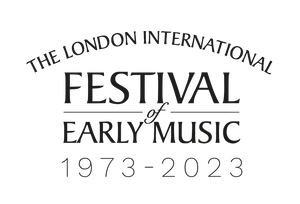
Music from Das Neue Mannheimer Orchester | Tuesday 10 November
Click here to pre-order.
Das Neue Mannheimer Orchester
As an early music ensemble, DNMO plays on period instruments using historically informed techniques. It is made up of young professional early music specialists, and is a highly international group of young specialists, playing concerts internationally and featuring talents from all around the world. DNMO is committed to challenge established boundaries and conventions of the Classical Music world with the goal of rekindling the passion of 18th century performances. DNMO has a number of research initiatives to better understand and reconstruct 18th century orchestral performance practices. In addition to presenting music from well-known masters, the DNMO seeks to present music of lesser known composers which is equally worthy of performance.
Concept
Under the reign and patronage of Elector Karl Theodor during 1743-78, the court orchestra of Mannheim became the leading centre of musical life in Europe. Not only were its performances of the music of the finest composers of the day considered first rate, but also were its own school of composers, virtuoso players, and innovative style. The new "Mannheim" style wowed audiences of the day with its extreme energy and spectacular new effects like the Mannheim Rocket and Crescendo (sometimes called the Mannheim Steamroller). This school had a profound influence on later composers like Mozart and Haydn, and Mozart notably sought employment there, albeit unsuccessfully.
German philosopher and music critic Christian Friedrich Daniel Schubart wrote in 1784:
“The elector's theater and his concert hall were almost an odeum, characterized by the masterworks of all artists. The elector 's changing mood contributed very much to this taste. Jommelli, Hasse, Graun, Traetta, Georg Benda, Sales, Agricola, the London Bach (Johann Christian Bach), Gluck, [and] Schweitzer alternated there year after year with the compositions of his own masters, so that there was no place in the world where one could so surely develop his musical taste so quickly as in Mannheim… No orchestra in the world has ever surpassed the performance of the Mannheim orchestra. Its forte is thunder; its crescendo, a cataract; its diminuendo, like a crystal stream plashing in the distance; its piano, a spring breeze. The wind instruments were all as suitable as they could be: they lift and carry, or they fill up and animate the storm of the violins.”
Although this music was extremely popular and influential in its time, it is largely forgotten today, so the release of this anthology of recordings brings new light to this otherwise obscure and underrated repertoire. The namesake of this anthology “Army of Generals” comes from a quote by English musicologist Charles Burney, who visited Mannheim in 1772 and wrote:
“There are more solo players and good composers in this, than perhaps in any other orchestra in Europe; it is an army of generals, equally fit to plan a battle, as to fight it.”
Programme
Johann Christian Bach (1735 - 1782) – Concerto for the Pianoforte Op. 13 No. 6 in E flat
Allegro
Tempo di Menuetto
Soloist: Anders Muskens (fortepiano c. 1787)
Johann Christian Bach (1735 - 1782) - Recitativo e Aria: “Anime, che provate” - "Queste selve gia d'amore" from Amor Vincitore with obligato flute, oboe, clarinet and bassoon
Aria (Alcidoro): “Queste selve già d’amore”
Soloists: Tinka Pypker (soprano), Florencia Gómez (traverso), Federico Forla (oboe), Elia Celegato (clarinet), Bernat Gili (bassoon)
Performance edition: Paul Corneilson
The performing material for Johann Christian Bach's recitative and aria, "Queste selve gia d’amore," from Amor vincitore was provided by The Packard Humanities Institute, Los Altos, California.
Acknowledgements
Das Neue Mannheimer Orchester acknowledge the support of the Canada Council for the Arts, the Adriana Jacoba Fond, and SENA for making this album possible.
The recordings were made at the Oud Katholieke Kerk, Delft, in the Netherlands.
